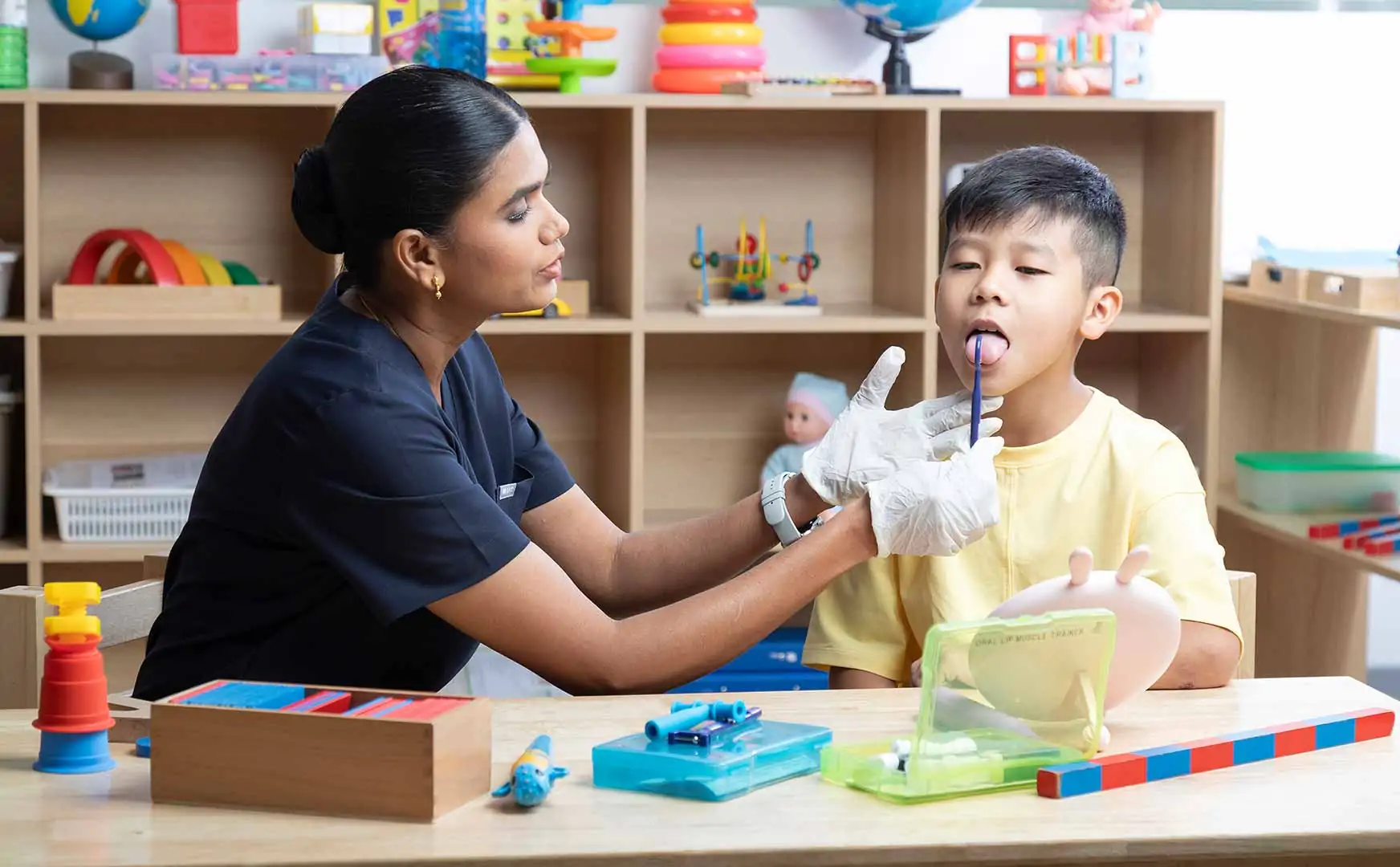When it comes to speech therapy, progress doesn’t end when a session finishes — it continues at home. For children in Phnom Penh and across Cambodia, consistent reinforcement from parents can make a huge difference in how quickly and effectively speech goals are achieved. Knowing how to practice these skills in everyday routines helps children develop confidence, communication, and independence. This article explores practical, culturally relevant ways Cambodian parents can reinforce speech therapy goals at home while partnering effectively with their child’s speech-language pathologist (SLP).
1. Understand Your Child’s Speech Goals
Every child’s speech therapy journey is unique. Some may be working on articulation, while others focus on expressive language or social communication. Start by asking your child’s speech therapist to share the specific goals and strategies being used in sessions.
For example, if your child is practicing r and s sounds, the therapist might recommend short daily drills or play-based repetition at home. If your child is focusing on sentence expansion, you can practice by describing actions during playtime or while preparing meals.
👉 Learn more about the process in What to Expect When Meeting a Speech-Language Pathologist.
2. Build Speech Practice Into Daily Routines
Reinforcement doesn’t require extra materials or long study sessions. Instead, integrate speech practice into your child’s natural routines:
-
During meals: Encourage your child to name foods, describe tastes, or ask politely for items.
-
Bath time: Use action words like “wash,” “pour,” and “splash” to develop vocabulary.
-
Traveling around Phnom Penh: Label things you see, such as “car,” “bridge,” or “market.” These moments provide rich, real-world opportunities for communication.
Parents often underestimate how powerful daily talk can be. Regular, low-pressure communication encourages natural learning and reduces frustration for children who are still building their language skills.
3. Use Play as a Learning Tool
Play is one of the most effective and enjoyable ways to reinforce speech goals at home. Games like “I Spy,” storytelling, and role-play can target multiple language areas — from vocabulary and sentence formation to turn-taking and listening.
Simple household objects can also become learning tools. For example:
-
Use blocks to talk about colors, sizes, and numbers.
-
Use toys to model short sentences like “The car goes fast” or “The doll is sleeping.”
-
Sing songs and rhymes to build rhythm, pronunciation, and memory.
Explore more fun ideas in Interactive Games for Improving Speech and Language Skills.
4. Give Positive Feedback and Encourage Confidence
Children thrive on encouragement. Celebrate their progress, no matter how small. Instead of correcting every mistake, focus on effort and improvement. Say, “I love how you tried that sound!” or “Great job using a full sentence!”
Positive reinforcement builds confidence and helps children feel motivated to communicate more often. According to speech therapists at OrbRom Center in Phnom Penh, this type of emotional support is just as important as technical practice — especially for children who experience anxiety or frustration during speech development.
5. Stay Consistent With Practice
Speech therapy success depends on consistency. Even 10–15 minutes of focused home practice per day can significantly speed up progress. Parents can create a simple routine, such as:
-
Practicing target sounds before bedtime.
-
Reviewing new words from therapy after dinner.
-
Watching short educational videos together and discussing them.
Set reminders or visual charts to make practice feel structured yet fun. For families in Cambodia balancing busy schedules, small, frequent sessions are more effective than long, occasional ones.
6. Collaborate Closely With Your Child’s Therapist
The best results come when parents and therapists work as a team. Keep open communication with your child’s SLP — share what’s working, where your child struggles, and any changes in behavior or motivation.
Many Phnom Penh families benefit from structured programs like the Special Needs Intensive Intervention Program, which combines one-on-one therapy with parent guidance. Regular check-ins ensure everyone is aligned and that home practice supports the child’s individualized goals.
You can also discuss if your child would benefit from additional support such as Occupational Therapy to strengthen fine motor or sensory processing skills, which often go hand-in-hand with communication development.
7. Make Communication a Family Activity
Encouraging siblings and other family members to join speech activities helps your child feel supported and understood. Family participation also reinforces generalization — the ability to use learned speech skills in different contexts.
For instance, while visiting relatives in the provinces or attending local celebrations, prompt your child to greet others, express needs, or share stories. Every social interaction counts as real-world speech practice.
Conclusion: Empowering Parents as Partners in Speech Therapy
Parents play a vital role in speech therapy success. By weaving communication practice into daily routines, providing positive feedback, and collaborating closely with professionals, families can help children make faster, more confident progress. Whether your child is working on articulation, fluency, or language comprehension, consistent support at home turns therapy goals into lifelong skills.
If you’d like guidance or resources on supporting your child’s communication journey, visit OrbRom Center’s Speech Therapy Services — where experienced therapists help children in Phnom Penh and across Cambodia find their voice, one word at a time.
We are the only Preschool specialized on children with special needs in PhnomPenh.
- Internationally qualified teachers
- Cambodia’s largest sensory room
- Outdoor swimming pool
- Covered outdoor playground
📞 Phone: 077.455.993
Telegram Link: https://t.me/OrbRom








Leave A Comment